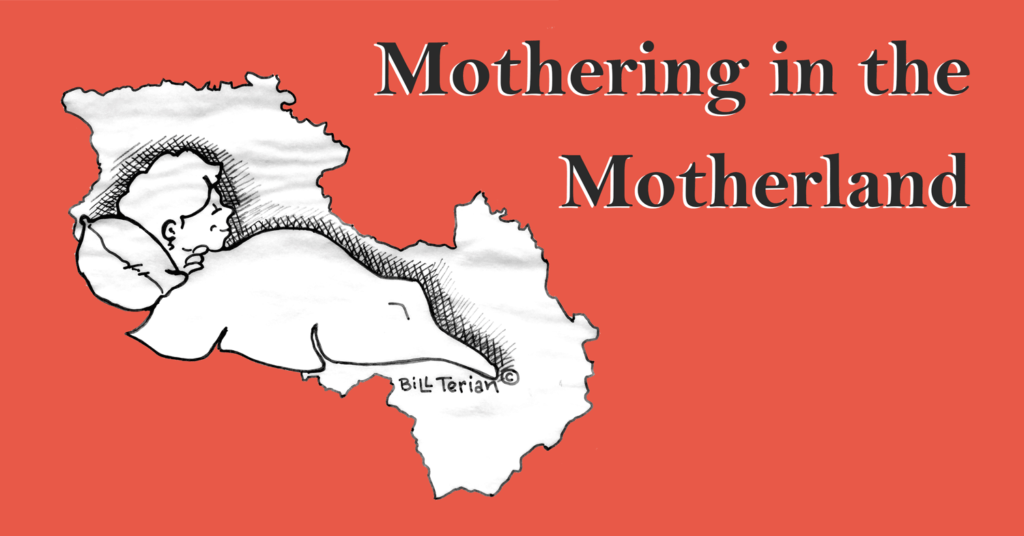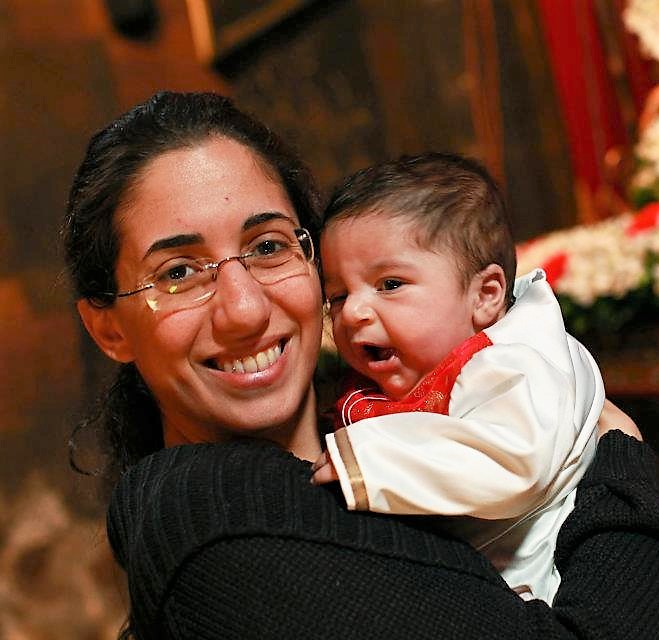 Though I am raising my children in the motherland, there is clearly a lot about me that is American. I was born in Washington, D.C. I grew up watching The Muppets. I went to American private schools and then a public high school. Perhaps the only thing I did that was Armenian was Sunday school at church.
Though I am raising my children in the motherland, there is clearly a lot about me that is American. I was born in Washington, D.C. I grew up watching The Muppets. I went to American private schools and then a public high school. Perhaps the only thing I did that was Armenian was Sunday school at church.
My husband, on the other hand, was born and raised in Dubai. His upbringing was an interesting combination of traditional and contemporary values and lessons. When we met, the balance of both worlds probably contributed to the chemistry between us. We both appreciated our traditional roots, but we also listened to plenty of Tupac and Zeppelin growing up.
Living in Armenia with these differences is often a challenge, though one that never truly bothered me before. Then again, I’m not the one walking around with tattoo sleeves looking like a Metallica roadie, like my husband.
But raising children with a more modern approach when surrounded by traditionalists? You are on trial for everything from what language your children learn first to how many layers of clothing you put on your infant in the middle of July to protect them from skvazniak (a gentle current of wind).
Ironically, my traditional parents raised us with a very modern approach. My mother sleep trained us, sent us to American schools, fed us traditional Barskahye (Persian-Armenian) foods like ghormeh sabzi and kookoo, but she also took us to McDonald’s and Chinese restaurants once a week for cultural diversity. We may have very diverse political views throughout our family, but in the end I grew up learning equality, diversity and kindness, regardless of gender or race.
You are on trial for everything from what language your children learn first to how many layers of clothing you put on your infant in the middle of July to protect them from skvazniak (a gentle current of wind).
One of the issues I face in Armenia is coming to terms with the treatment of women. They are the workforce, the mothers, the backbone of society. But they have very little say in how the world functions around them. The most shocking reality was the extent of their own acceptance for the fact that their husbands are expected to cheat on them while they slave away at home. Though the statistics on this have changed drastically over the years, it has only resulted in more divorces instead of reformed men.
I believe part of the reformation begins at home. Many people can’t understand why my husband is willing and able to cook for his family. Someone recently expressed shock that my husband helps around the house when I’m overwhelmed with my responsibilities. He’s still a very traditional husband and father, which I respect. But there is a vicious level of psychological cruelty that has become acceptable in traditional families in Armenia.
I know I usually use stories as examples to back up my conclusions, but I’m finding it very hard to share some of the very personal experiences of other families to make my case. However, I know more than my fair share of women who suffer at the hands of their husbands and/or mother-in-laws. I also know many women who would never subscribe to the Armenian man’s fantasy that she’s a servant in his kingdom; those women enjoy their freedom. But the direct exposure to abuse, maltreatment and disrespect is shocking to me. I’ve always been surrounded by strong intellectual women who are often the head of their households. The thought of a man holding such power over a woman is hard for me to accept, especially when it causes so much suffering.
So how do I cope with it? Well for starters, I embrace the fact that my husband introduces me as “the boss.” Even if it’s not the case, even if it’s in a joking manner, it shows a humility in him that often changes the perspective of other men on the lack of need for machismo. My husband is as manly as they come, so if he doesn’t need to beat me down, and why would anybody else in order to prove their masculinity? Much of the change in perspective actually does come from men, not women.
I also find that there are an impressive number of women in Armenia who represent the change I’d like to see. I’m hopeful. There are so many women who inspire me to this day. They are leaders, business owners, politicians and mothers. They represent the ideal role of a woman in society without threatening the well-being of a man, but instead enhancing the security of women.
I also walk the walk. I don’t let people normalize the degradation of women. I call them out. I say what needs to be said when it needs to be said without fear of backlash. After, all who is going to stop me?
At the end of the day, the greatest responsibility I have is to raise my children to respect women and to understand their value. It’s interesting that I was blessed with two boys. It’s possible I was meant to raise boys for this very reason. The attitude of men towards women must change. Also, a man’s responsibilities in society must adapt, and their insecurities need to disappear to make this all possible.
As long as people live within the law and respect the people and traditions, I truly believe everyone should be welcome to contribute to the evolution of that culture.
Avo’s teacher once told me that one thing she loves about him is that he doesn’t play differently with girls than with boys. To him they are all the same in the world of play. I was so proud to hear this. I was the same, so was my sister, so was my brother. To see it in my own children gives me hope that he will be able to shift the balance just that little bit toward equality.
Having said that, I often get asked how people in Armenia view me. Do they accept me? Do they consider me radical? And how do I feel as a woman living in Armenia, considering the values of society?
My answer has always been the same: it doesn’t matter to me. While I respect the country I live in and the obvious cultural differences, the one thing that will not be taken from me is my entitlement to my own identity. I live, breathe, and eat just like everyone else. So do my children and so does my husband. I have never felt the need to gain acceptance in Armenia. Maybe that’s because I always viewed it as my own.
As long as people live within the law and respect the people and traditions, I truly believe everyone should be welcome to contribute to the evolution of that culture.
That said, my children will be fine wearing minimal clothing when there’s a mild skvazniak in the house in July. And they will not get cancer if I don’t give them tumeric every day in their home cooked meal (though I should try). And they will not become misogynistic pigs if I let them learn how to hunt.
As for how I live with such clashes, every encounter is an opportunity for exchanging knowledge and experience. It goes both ways.
Author information
The post Reforming Parenting and Gender Roles appeared first on The Armenian Weekly.
Source: Armenian Weekly
Link: Reforming Parenting and Gender Roles

